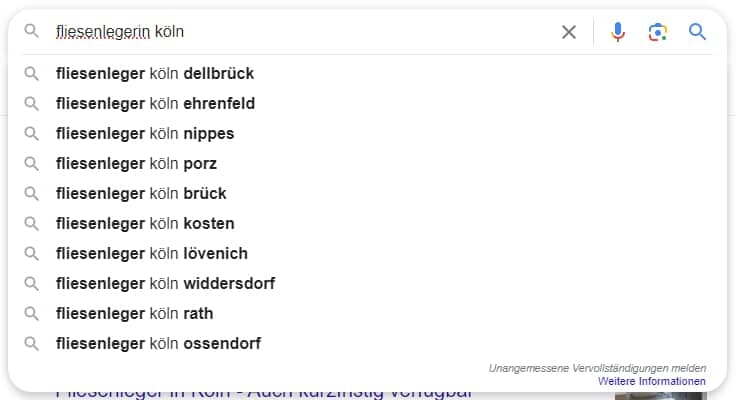
Clients, colleagues, tax consultants, doctors, painters, everyone – what stands out? That’s right, all these are (professional) terms that use the “generic masculine”. “Generic” in this case means that the designation should apply to both men and women and everything beyond – practically as a “universally valid generic term”. Discussions about gender-equitable language have been going on since the 1970s. Thus, two positions have emerged: For some, “gendern” is an expression of equality, for others it is a bastardisation of language.
What gender forms are there?
Currently, there are five ways to gender in writing in German:
- Both gender naming: Both genders are mentioned, e.g. “Lehrer” und “Lehrerinnen”
- Binnen-I: e.g. “FriseurIn”
- Slash: e.g. “Elektriker/in”
- Neutralisation: The generic masculine is replaced by a gender-neutral term, e.g. “Mitarbeitende” instead of “Mitarbeiter”.
- Gender sign: Asterisk (*), colon (:) or underscore (_) are used for multi-gender spelling, e.g. “Maler”, “Maler:in” or “Maler_in”
It should be emphasized that only bisexuality is addressed in the case of co-gendering, but not gender diversity. This is addressed by neutralization or gender signs.
Written gendering is one thing, spoken gendering is another. The gender sign is indicated by a short pause, as in “Spiegel-Ei”. So if you hear someone say “Lehrer-In”, you know that this person wants to address at least man and woman. “Lehrende” would then be the gender-neutral designation here.
Gender, SEO and Google – Current Status
Search engine optimization has a lot to do with the right keywords. We need to know how our target groups search for our services or products, i.e. what search queries they make. At the latest during keyword research, it becomes very clear that most people do not gender when searching. At the latest, it becomes very clear during keyword research that most people do not gender when searching. According to a recent survey by YouGov 50% of respondents find gendering “very unimportant”. Whether this statistic necessarily has much significance remains to be seen, but it reflects the search behavior in Google well.
Tools like SISTRIX, for example, clearly show that people hardly ever search for a tax consultant, dentist or hairdresser. Instead, most people search with the generic masculine:

Google’s algorithm is based on real search queries, on the basis of which the search suggestions (Google Suggest) are also generated. This is why certain searches, e.g. for “Fliesenlergerin” in the Cologne area, produce the following result:

Google practically replaces the tiler with the tiler and thus makes more search suggestions.
What does Google say about SEO and gendering?
John Mueller aka Joachim Mueller of Google has already spoken out on the topic of gender and Google in 2021:
Normally, for things like that, we try to design our systems so that they just recognize synonyms. And that they then recognize, for example, that the one with the “In” at the end is the same as the one without the “In”, and that we can then collapse them accordingly when someone is looking for one or the other variant. With a colon or with an asterisk in between, that should work by default. Because we would then simply be able to recognize the word beforehand and process it accordingly. It is difficult to say how much we would have to help on our side to make it work better in one direction or the other. Normally, with such changes, we also wait a bit to see how far it spreads externally, so to speak, and how it continues to develop. That is, if we then clearly see that – let’s say – the variant with the colon is the variant that everyone is trying to use, and if we also see that users are coping with the variant, then I could imagine that we might tune our systems a bit more in the direction that they would recognize it better. Or that they don’t have to pay so much attention to whether it’s a synonym or not, but that it could simply be recorded as such by default.
John Mueller / Search Advocate, Google
Conclusion: Correct gendering in SEO
If we take John Mueller’s words to heart, it becomes clear again that Google is guided by user behavior. They don’t say this is right and this is wrong, and they don’t say you have to do this or that for your pages to rank well. Google puts users first, observes, and then we keep making changes to the algorithm.
So we can say:
- The gender asterisk variant and the colon variant work.
- Google will react accordingly to which variant(s) prevail(s)
- Text should read well.
- Test, test, test
It remains exciting!


